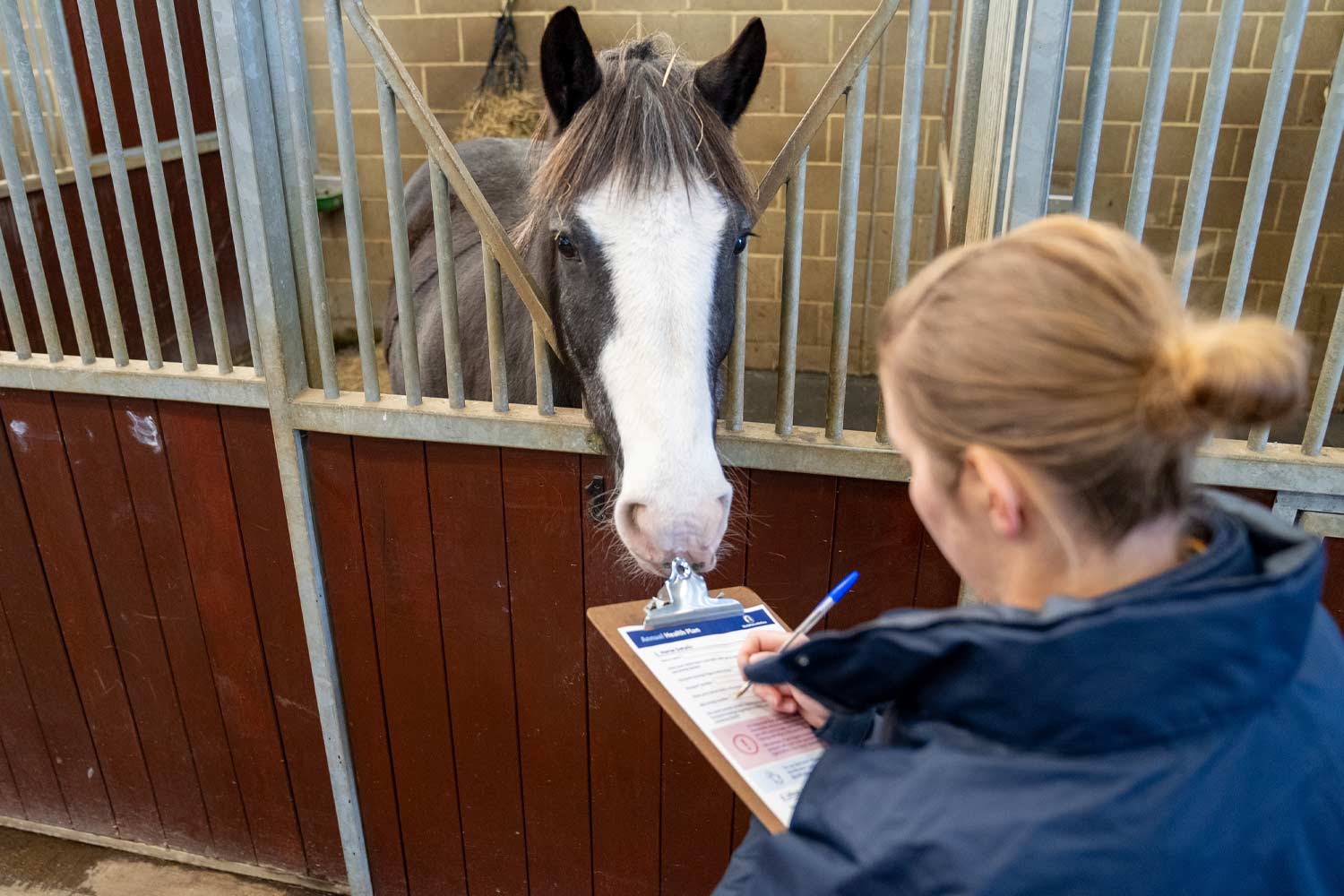To keep your horse or pony happy and healthy during very hot weather, there are a range of things to consider, including:
Access to water
- Make sure your horse has constant access to fresh, clean water.
- This may mean adding an extra bucket to their field or stable, or providing an additional top-up during the day if they don’t have an automatic water trough.
- If you do have an automatic water trough, make sure it is checked twice daily to ensure it is working and the water is clean.
Provision of shade/shelter
- Horses should have access to a shelter when turned out regardless of the weather or time of year.
- Horses tend to use their shelters more regularly during warm weather to seek respite from the sun and biting insects.
- It’s important to make sure they have either a natural or man-made shady area available.
Ventilation
- Consider increasing the airflow for any stabled horses.
- Try using a large industrial standard fan, making sure it is placed in a safe location where no horse can physically touch it or its power supply.
- If you chose to use a fan, ensure that all horses in the stable area are given time to become accustomed to both the noise and the effect of the fan, as it might be scary for them at first.
Sunburn
- Make sure any pink areas on a horse, particularly around the head and heel areas, are protected from the sun.
- Try using sun cream (horse specific cream is available or children’s sunblock – but test a small area first to make sure your horse is not allergic).
- There are a range of full-face fly masks that now offer UV protection.
- Ensure there is a shady area in the field for them to rest.
- If your horse does become sunburnt, he or she needs to get out of the sun as soon as possible and have the area cooled with water. Specialist creams are available to help soothe and rehydrate the skin – speak to your vet about what products are available. If the sunburnt area is crusty or weeping fluid, consult your vet immediately.
Flies and midges
- Flies and midges are an on-going problem for horses, particularly during hot weather.
- Make sure you have fully read the instructions on any product you are using to repel flies and are applying it at the correct dosage.
- Fly rugs and masks can be very effective but in addition you also need to ensure that stables are kept clean and fields poo-picked to make sure these areas are less appealing to flies.
Workload and cool down
- The government have previously issued guidelines for dog owners to avoid walking their dogs during the hours between 10am and 4pm as these are the hottest times of the day.
- Bear this in mind when deciding when to ride/exercise your horse, but it’s also wise to use common sense.
- In periods of really intense heat, even the evenings can be hot, so if you do need to ride, try and pick the coolest time of day to do so.
- After riding make sure your horse is properly cooled down and ideally hosed off or sponged down to remove sweat and aid the cooling process.
Travel
- If you need to travel your horse, try to travel early in the morning when it is cool and provide as much ventilation as possible by opening all vents and windows of the trailer or lorry.
- Make sure your horse is well rested and hydrated before any journey and provide water on arrival.
- Keep journey times short and only travel if it is really necessary.
Hydration guidelines for equines
For more information about keeping your horse hydrated during travel please check out our Travelling safely: vehicle requirements page.
Popular advice in Environment

Pasture management for horse paddocks
Find out how to manage your paddock for the health of your horse, pasture and soil.

Winter horse care tips
Read our advice on how to care for your horse during winter, including our top ten tips on winter horse care.
Other advice categories
All webinar categories:
Call our Advice Line
+44 (0)1953 497 238Not found the advice you were looking for? Our friendly team of horse care experts offer free practical advice. What can we help you with today? Our advice line is available 8.30am-5:00pm, or you can email education@worldhorsewelfare.org.



